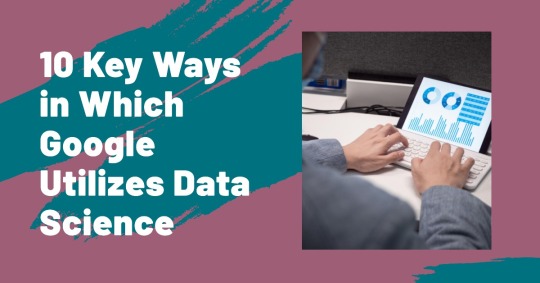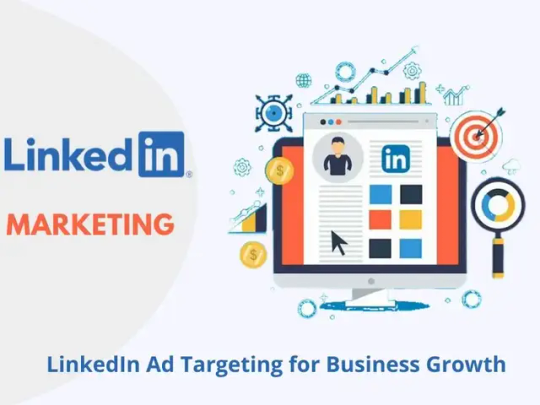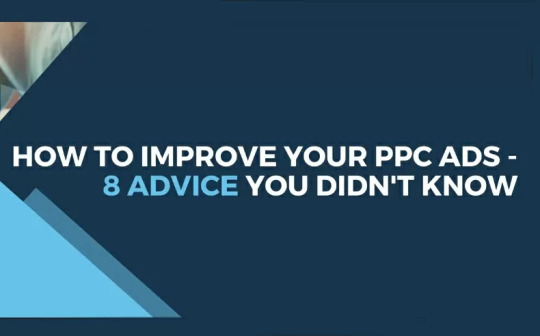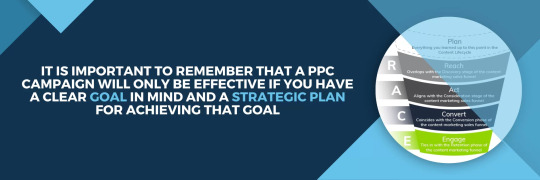#Ad Targeting
Explore tagged Tumblr posts
Text
Ad-tech targeting is an existential threat

I'm on a 20+ city book tour for my new novel PICKS AND SHOVELS. Catch me TORONTO on SUNDAY (Feb 23) at Another Story Books, and in NYC on WEDNESDAY (26 Feb) with JOHN HODGMAN. More tour dates here.

The commercial surveillance industry is almost totally unregulated. Data brokers, ad-tech, and everyone in between – they harvest, store, analyze, sell and rent every intimate, sensitive, potentially compromising fact about your life.
Late last year, I testified at a Consumer Finance Protection Bureau hearing about a proposed new rule to kill off data brokers, who are the lynchpin of the industry:
https://pluralistic.net/2023/08/16/the-second-best-time-is-now/#the-point-of-a-system-is-what-it-does
The other witnesses were fascinating – and chilling, There was a lawyer from the AARP who explained how data-brokers would let you target ads to categories like "seniors with dementia." Then there was someone from the Pentagon, discussing how anyone could do an ad-buy targeting "people enlisted in the armed forces who have gambling problems." Sure, I thought, and you don't even need these explicit categories: if you served an ad to "people 25-40 with Ivy League/Big Ten law or political science degrees within 5 miles of Congress," you could serve an ad with a malicious payload to every Congressional staffer.
Now, that's just the data brokers. The real action is in ad-tech, a sector dominated by two giant companies, Meta and Google. These companies claim that they are better than the unregulated data-broker cowboys at the bottom of the food-chain. They say they're responsible wielders of unregulated monopoly surveillance power. Reader, they are not.
Meta has been repeatedly caught offering ad-targeting like "depressed teenagers" (great for your next incel recruiting drive):
https://www.technologyreview.com/2017/05/01/105987/is-facebook-targeting-ads-at-sad-teens/
And Google? They just keep on getting caught with both hands in the creepy commercial surveillance cookie-jar. Today, Wired's Dell Cameron and Dhruv Mehrotra report on a way to use Google to target people with chronic illnesses, people in financial distress, and national security "decision makers":
https://www.wired.com/story/google-dv360-banned-audience-segments-national-security/
Google doesn't offer these categories itself, they just allow data-brokers to assemble them and offer them for sale via Google. Just as it's possible to generate a target of "Congressional staffers" by using location and education data, it's possible to target people with chronic illnesses based on things like whether they regularly travel to clinics that treat HIV, asthma, chronic pain, etc.
Google claims that this violates their policies, and that they have best-of-breed technical measures to prevent this from happening, but when Wired asked how this data-broker was able to sell these audiences – including people in menopause, or with "chronic pain, fibromyalgia, psoriasis, arthritis, high cholesterol, and hypertension" – Google did not reply.
The data broker in the report also sold access to people based on which medications they took (including Ambien), people who abuse opioids or are recovering from opioid addiction, people with endocrine disorders, and "contractors with access to restricted US defense-related technologies."
It's easy to see how these categories could enable blackmail, spear-phishing, scams, malvertising, and many other crimes that threaten individuals, groups, and the nation as a whole. The US Office of Naval Intelligence has already published details of how "anonymous" people targeted by ads can be identified:
https://www.odni.gov/files/ODNI/documents/assessments/ODNI-Declassified-Report-on-CAI-January2022.pdf
The most amazing part is how the 33,000 targeting segments came to public light: an activist just pretended to be an ad buyer, and the data-broker sent him the whole package, no questions asked. Johnny Ryan is a brilliant Irish privacy activist with the Irish Council for Civil Liberties. He created a fake data analytics website for a company that wasn't registered anywhere, then sent out a sales query to a brokerage (the brokerage isn't identified in the piece, to prevent bad actors from using it to attack targeted categories of people).
Foreign states, including China – a favorite boogeyman of the US national security establishment – can buy Google's data and target users based on Google ad-tech stack. In the past, Chinese spies have used malvertising – serving targeted ads loaded with malware – to attack their adversaries. Chinese firms spend billions every year to target ads to Americans:
https://www.nytimes.com/2024/03/06/business/google-meta-temu-shein.html
Google and Meta have no meaningful checks to prevent anyone from establishing a shell company that buys and targets ads with their services, and the data-brokers that feed into those services are even less well-protected against fraud and other malicious act.
All of this is only possible because Congress has failed to act on privacy since 1988. That's the year that Congress passed the Video Privacy Protection Act, which bans video store clerks from telling the newspapers which VHS cassettes you have at home. That's also the last time Congress passed a federal consumer privacy law:
https://en.wikipedia.org/wiki/Video_Privacy_Protection_Act
The legislative history of the VPPA is telling: it was passed after a newspaper published the leaked video-rental history of a far-right judge named Robert Bork, whom Reagan hoped to elevate to the Supreme Court. Bork failed his Senate confirmation hearings, but not because of his video rentals (he actually had pretty good taste in movies). Rather, it was because he was a Nixonite criminal and virulent loudmouth racist whose record was strewn with the most disgusting nonsense imaginable).
But the leak of Bork's video-rental history gave Congress the cold grue. His video rental history wasn't embarrassing, but it sure seemed like Congress had some stuff in its video-rental records that they didn't want voters finding out about. They beat all land-speed records in making it a crime to tell anyone what kind of movies they (and we) were watching.
And that was it. For 37 years, Congress has completely failed to pass another consumer privacy law. Which is how we got here – to this moment where you can target ads to suicidal teens, gambling addicted soldiers in Minuteman silos, grannies with Alzheimer's, and every Congressional staffer on the Hill.
Some people think the problem with mass surveillance is a kind of machine-driven, automated mind-control ray. They believe the self-aggrandizing claims of tech bros to have finally perfected the elusive mind-control ray, using big data and machine learning.
But you don't need to accept these outlandish claims – which come from Big Tech's sales literature, wherein they boast to potential advertisers that surveillance ads are devastatingly effective – to understand how and why this is harmful. If you're struggling with opioid addiction and I target an ad to you for a fake cure or rehab center, I haven't brainwashed you – I've just tricked you. We don't have to believe in mind-control to believe that targeted lies can cause unlimited harms.
And those harms are indeed grave. Stein's Law predicts that "anything that can't go on forever eventually stops." Congress's failure on privacy has put us all at risk – including Congress. It's only a matter of time until the commercial surveillance industry is responsible for a massive leak, targeted phishing campaign, or a ghastly national security incident involving Congress. Perhaps then we will get action.
In the meantime, the coalition of people whose problems can be blamed on the failure to update privacy law continues to grow. That coalition includes protesters whose identities were served up to cops, teenagers who were tracked to out-of-state abortion clinics, people of color who were discriminated against in hiring and lending, and anyone who's been harassed with deepfake porn:
https://pluralistic.net/2023/12/06/privacy-first/#but-not-just-privacy

If you'd like an essay-formatted version of this post to read or share, here's a link to it on pluralistic.net, my surveillance-free, ad-free, tracker-free blog:
https://pluralistic.net/2025/02/20/privacy-first-second-third/#malvertising

Image: Cryteria (modified) https://commons.wikimedia.org/wiki/File:HAL9000.svg
CC BY 3.0 https://creativecommons.org/licenses/by/3.0/deed.en
#pluralistic#google#ad-tech#ad targeting#surveillance capitalism#vppa#video privacy protection act#mind-control rays#big tech#privacy#privacy first#surveillance advertising#behavioral advertising#data brokers#cfpb
526 notes
·
View notes
Text
Google's ads really want me to buy this

which turns out to be this

lol.
16 notes
·
View notes
Text

Driving Success with TikTok Ads and CRO: Strategies by cro.media
Unlock the full potential of TikTok ads with CRO for better engagement and higher conversions.
Source: https://cro.media/insights/social-media/driving-success-with-tiktok-ads-and-cro-strategies/
TikTok's meteoric rise has established it as a fertile ground for businesses to connect with younger, trend-driven audiences. At cro.media, we believe harnessing TikTok’s ad capabilities through Conversion Rate Optimization (CRO) strategies can elevate your campaigns from good to exceptional. Here’s how CRO principles align with TikTok advertising to drive engagement, conversions, and return on ad spend (ROAS).
Understanding TikTok's Unique Potential
TikTok offers a mix of high engagement, diverse ad formats, and robust targeting tools. CRO amplifies these advantages by:
Enhancing Ad Relevance: Precise targeting based on user behaviors ensures your ads resonate deeply with your audience.
Optimizing Engagement: Combining native TikTok aesthetics with CRO-informed hooks captures attention and maximizes click-through rates.
Data-Driven Iteration: CRO principles guide A/B testing of creatives, formats, and CTAs for continuous improvement.
Leveraging Ad Formats for Maximum Impact
TikTok's ad types present numerous opportunities for CRO enhancement:
In-Feed Ads: Seamlessly integrated, these benefit from CRO-tested visuals and compelling CTAs to direct users to optimized landing pages.
Branded Hashtag Challenges: Pairing these with CRO insights ensures challenges are engaging, trackable, and conversion-focused.
Spark Ads: Use CRO principles to amplify high-performing user-generated content, combining authenticity with targeted reach.
CRO-Optimized Campaign Creation
A streamlined ad creation process benefits greatly from CRO at each step:
Audience Targeting: Tailor campaigns based on detailed CRO data, focusing on demographics and behaviors that drive the most ROI.
Hook Optimization: CRO research prioritizes scroll-stopping intros, ensuring the first seconds of your ad grab attention.
Landing Pages: Direct ad traffic to CRO-optimized pages with clear messaging, fast load times, and mobile-friendly designs.
Iterative Testing: Conduct regular A/B tests on visuals, captions, and CTAs, using CRO insights to refine performance.
Integrating User-Generated Content and Influencers
CRO principles emphasize trust-building, making TikTok's user-generated content (UGC) and influencer collaborations key:
Authenticity as Strategy: UGC ads benefit from CRO-informed placement, ensuring the content aligns with user expectations and brand messaging.
Influencer Partnerships: CRO helps measure influencer impact by linking campaigns to specific landing pages and tracking engagement metrics.
Conversion-Focused Offers and Urgency
TikTok's audience, often price-sensitive, responds well to tailored incentives:
Limited-Time Deals: Use CRO tools to test urgency-driven offers, such as countdown timers or exclusive discounts.
Compelling CTAs: Align calls-to-action with user intent, such as “Shop Now” or “Claim Your Discount,” backed by CRO testing for optimal phrasing.
Measuring and Scaling Performance
TikTok’s analytics complement CRO by providing actionable insights:
ROAS Tracking: Use CRO benchmarks to assess ad effectiveness and reallocate budgets for high-performing segments.
Behavioral Insights: TikTok's metrics, combined with CRO analysis, uncover user preferences, informing future campaigns.
Unlocking TikTok’s Full Potential with CRO
By integrating TikTok’s creative power with CRO expertise, cro.media helps businesses achieve impactful advertising campaigns. From data-driven targeting to optimized user journeys, our strategies ensure every ad dollar is maximized, turning views into loyal customers. Let’s grow your brand’s presence on TikTok together.
0 notes
Video
Ad-tech targeting is an existential threat by Cory Doctorow Via Flickr: pluralistic.net/2025/02/20/privacy-first-second-third/#ma... A towering figure with the head of HAL 9000 from Stanley Kubrick's '2001: A Space Odyssey,' surmounted by Trump's hair, wearing a tailcoat with a Google logo lapel pin. It peers through a magnifying glass at a distressed, tiny Uncle Sam figure perched in its monstrous palm. Image: Cryteria (modified) commons.wikimedia.org/wiki/File:HAL9000.svg CC BY 3.0 creativecommons.org/licenses/by/3.0/deed.en
#pluralistic#illustration#collage#google#ad-tech#ad targeting#surveillance capitalism#vppa#video privacy protection act#mind-control rays#big tech#privacy#privacy first#surveillance advertising#behavioral advertising#data brokers#cfpb#flickr
0 notes
Text
How to Use AI to Optimize Your Social Media Ads
Using AI to optimize your social media ads can help improve targeting, engagement, and overall ad performance. Here’s how you can leverage AI for your social media advertising strategy: 1. Audience Targeting and Segmentation AI tools can analyze large datasets and identify patterns in user behavior, demographics, and interests, allowing you to segment your audience more accurately. Platforms…
0 notes
Text
Ok so, obviously this won't reach anyone because I haven't been on Tumblr for years but I have a gripe to share. Targeted ads are a goddamn nightmare. They know all my insecurities and it makes me so mad. I'm sure it's happening to everyone. The only solution I've found thus far is to interact with all the ones you're semi ok with. Phone cases, manicure sets, cheap handbags etc etc. Since I've adopted this technique I'm mostly seeing the above rather than diet plans, body suits and anti wrinkle cream. It's not great but it works.
0 notes
Text
Adapt or Fail: Contextual Advertising in a Post-Cookie Landscape
All over the world, the rising concern about data security and user privacy has led to a major transformation in the way online marketing is conducted. Regulations like GDPR rendered cookies less effective, and now the third-party cookies which are the backbone of behavioral tracking for marketers, are being removed by browsers.
What Is Contextual Advertising?
Contextual advertising is a practice wherein marketers place ads that are relevant to the content of the web pages where they will be shown.
Contextual Advertising targeting programmatic is not based on cookies, but on keywords or the topic of the website. This is not only going to make targeting more efficient for the marketers, but it will also improve the experience for the consumers as they will not be bombarded with irrelevant and repeat advertising across platforms during their online activities.
Click here to read more about Contextual Advertising.
0 notes
Text
So I've had "targeted ads" turned off pretty much the entire time I've used Tumblr. And what have I discovered?
When someone opts out of targeted ads, the only ads they see are the ads that nobody else would be a suitable target for.
Nobody here would fall for a pseudomedical scam. Nobody here would fall for a "diet pill" scam. Nobody here likes conservatives or would ever consider supporting one.
Because I have targeted advertising turned off, I see all the ads that Tumblr knows nobody would like to see.
What I want to know is... why don't they just reject advertisers that they know their users don't want to see? Why doesn't Tumblr put any discretion into that?
They moderate the users, why don't they moderate the advertisers as well?
1 note
·
View note
Text
Understanding the Differences: Google Display Network vs Search Network
The Understanding between the Difference of Google Display Network vs Search Network product is a comprehensive guide that aims to provide users with a clear understanding of the distinctions between the Google Display Network (GDN) and the Google Search Network (GSN). This informative resource delves into the intricacies of these two advertising platforms, highlighting their unique features, advantages, and best practices for effective utilization.
#Google Display Network#Search Network#PPC Advertising#Digital Marketing#Online Advertising#LevyconIndia#Ad Campaigns#Targeted Ads#Display Ads#Search Ads#Ad Networks#Ad Words#Ad Placement#Ad Targeting#Ad Formats#Ad Performance#Ad Reach#Ad Visibility#Ad Relevance#Ad Conversion#Ad Metrics#Ad Optimization#Digital Advertising#Online Marketing#Audience Targeting#Keyword Targeting#Ad Budgeting
0 notes
Text
Optimizing Ad Campaigns with AI: A Marketer's Guide
By leveraging AI technologies, marketers can optimize ad campaigns with AI precisely and efficiently like never before. In this blog, we'll explore how AI is reshaping ad campaigns, as well as examples and platforms where AI is making significant strides.
#AI in marketing#Ad campaign optimization#Artificial intelligence#Marketing strategies#Digital advertising#Machine learning#Marketing technology#Data-driven marketing#Ad targeting#Marketing analytics
0 notes
Text
The surveillance advertising to financial fraud pipeline

Monday (October 2), I'll be in Boise to host an event with VE Schwab. On October 7–8, I'm in Milan to keynote Wired Nextfest.

Being watched sucks. Of all the parenting mistakes I've made, none haunt me more than the times my daughter caught me watching her while she was learning to do something, discovered she was being observed in a vulnerable moment, and abandoned her attempt:
https://www.theguardian.com/technology/blog/2014/may/09/cybersecurity-begins-with-integrity-not-surveillance
It's hard to be your authentic self while you're under surveillance. For that reason alone, the rise and rise of the surveillance industry – an unholy public-private partnership between cops, spooks, and ad-tech scum – is a plague on humanity and a scourge on the Earth:
https://pluralistic.net/2023/08/16/the-second-best-time-is-now/#the-point-of-a-system-is-what-it-does
But beyond the psychic damage surveillance metes out, there are immediate, concrete ways in which surveillance brings us to harm. Ad-tech follows us into abortion clinics and then sells the info to the cops back home in the forced birth states run by Handmaid's Tale LARPers:
https://pluralistic.net/2022/06/29/no-i-in-uter-us/#egged-on
And even if you have the good fortune to live in a state whose motto isn't "There's no 'I" in uter-US," ad-tech also lets anti-abortion propagandists trick you into visiting fake "clinics" who defraud you into giving birth by running out the clock on terminating your pregnancy:
https://pluralistic.net/2023/06/15/paid-medical-disinformation/#crisis-pregnancy-centers
The commercial surveillance industry fuels SWATting, where sociopaths who don't like your internet opinions or are steamed because you beat them at Call of Duty trick the cops into thinking that there's an "active shooter" at your house, provoking the kind of American policing autoimmune reaction that can get you killed:
https://www.cnn.com/2019/09/14/us/swatting-sentence-casey-viner/index.html
There's just a lot of ways that compiling deep, nonconsensual, population-scale surveillance dossiers can bring safety and financial harm to the unwilling subjects of our experiment in digital spying. The wave of "business email compromises" (the infosec term for impersonating your boss to you and tricking you into cleaning out the company bank accounts)? They start with spear phishing, a phishing attack that uses personal information – bought from commercial sources or ganked from leaks – to craft a virtual Big Store con:
https://www.fbi.gov/how-we-can-help-you/safety-resources/scams-and-safety/common-scams-and-crimes/business-email-compromise
It's not just spear-phishers. There are plenty of financial predators who run petty grifts – stock swindles, identity theft, and other petty cons. These scams depend on commercial surveillance, both to target victims (e.g. buying Facebook ads targeting people struggling with medical debt and worried about losing their homes) and to run the con itself (by getting the information needed to pull of a successful identity theft).
In "Consumer Surveillance and Financial Fraud," a new National Bureau of Academic Research paper, a trio of business-school profs – Bo Bian (UBC), Michaela Pagel (WUSTL) and Huan Tang (Wharton) quantify the commercial surveillance industry's relationship to finance crimes:
https://www.nber.org/papers/w31692
The authors take advantage of a time-series of ZIP-code-accurate fraud complaint data from the Consumer Finance Protection Board, supplemented by complaints from the FTC, along with Apple's rollout of App Tracking Transparency, a change to app-based tracking on Apple mobile devices that turned of third-party commercial surveillance unless users explicitly opted into being spied on. More than 96% of Apple users blocked spying:
https://arstechnica.com/gadgets/2021/05/96-of-us-users-opt-out-of-app-tracking-in-ios-14-5-analytics-find/
In other words, they were able to see, neighborhood by neighborhood, what happened to financial fraud when users were able to block commercial surveillance.
What happened is, fraud plunged. Deprived of the raw material for committing fraud, criminals were substantially hampered in their ability to steal from internet users.
While this is something that security professionals have understood for years, this study puts some empirical spine into the large corpus of qualitative accounts of the surveillance-to-fraud pipeline.
As the authors note in their conclusion, this analysis is timely. Google has just rolled out a new surveillance system, the deceptively named "Privacy Sandbox," that every Chrome user is being opted in to unless they find and untick three separate preference tickboxes. You should find and untick these boxes:
https://www.eff.org/deeplinks/2023/09/how-turn-googles-privacy-sandbox-ad-tracking-and-why-you-should
Google has spun, lied and bullied Privacy Sandbox into existence; whenever this program draws enough fire, they rename it (it used to be called FLoC). But as the Apple example showed, no one wants to be spied on – that's why Google makes you find and untick three boxes to opt out of this new form of surveillance.
There is no consensual basis for mass commercial surveillance. The story that "people don't mind ads so long as they're relevant" is a lie. But even if it was true, it wouldn't be enough, because beyond the harms to being our authentic selves that come from the knowledge that we're being observed, surveillance data is a crucial ingredient for all kinds of crime, harassment, and deception.
We can't rely on companies to spy on us responsibly. Apple may have blocked third-party app spying, but they effect nonconsensual, continuous surveillance of every Apple mobile device user, and lie about it:
https://pluralistic.net/2022/11/14/luxury-surveillance/#liar-liar
That's why we should ban commercial surveillance. We should outlaw surveillance advertising. Period:
https://www.eff.org/deeplinks/2022/03/ban-online-behavioral-advertising
Contrary to the claims of surveillance profiteers, this wouldn't reduce the income to ad-supported news and other media – it would increase their revenues, by letting them place ads without relying on the surveillance troves assembled by the Google/Meta ad-tech duopoly, who take the majority of ad-revenue:
https://www.eff.org/deeplinks/2023/05/save-news-we-must-ban-surveillance-advertising
We're 30 years into the commercial surveillance pandemic and Congress still hasn't passed a federal privacy law with a private right of action. But other agencies aren't waiting for Congress. The FTC and DoJ Antitrust Divsision have proposed new merger guidelines that allow regulators to consider privacy harms when companies merge:
https://www.regulations.gov/comment/FTC-2023-0043-1569
Think here of how Google devoured Fitbit and claimed massive troves of extremely personal data, much of which was collected because employers required workers to wear biometric trackers to get the best deal on health care:
https://www.eff.org/deeplinks/2020/04/google-fitbit-merger-would-cement-googles-data-empire
Companies can't be trusted to collect, retain or use our personal data wisely. The right "balance" here is to simply ban that collection, without an explicit opt-in. The way this should work is that companies can't collect private data unless users hunt down and untick three "don't spy on me" boxes. After all, that's the standard that Google has set.

If you'd like an essay-formatted version of this post to read or share, here's a link to it on pluralistic.net, my surveillance-free, ad-free, tracker-free blog:
https://pluralistic.net/2023/09/29/ban-surveillance-ads/#sucker-funnel

Image: Cryteria (modified) https://commons.wikimedia.org/wiki/File:HAL9000.svg
CC BY 3.0 https://creativecommons.org/licenses/by/3.0/deed.en
#pluralistic#commercial surveillance#surveillance#surveillance advertising#ad-tech#behavioral advertising#ads#privacy#fraud#targeting#ad targeting#scams#scholarship#nber#merger guidelines#ftc#doj
285 notes
·
View notes
Text
10 Key Ways in Which Google Utilizes Data Science
Google relies on data science as it underpins the company’s ability to innovate, optimize, and provide valuable services. With an immense amount of user-generated data at its disposal, data science enables Google to enhance its core products like search, advertising, and recommendations, delivering a more personalized and efficient experience. It’s crucial for staying competitive, improving user…

View On WordPress
#Ad Targeting#Data Center Optimization#Data Science#Google#Image Analysis#Natural Language Processing#Search Algorithms#Security#Video Analysis
0 notes
Text
Precision Advertising with Ad Targeting: Connect with Your Ideal Audience, Drive Conversions, and Revolutionize Digital Success
Embark on a transformative journey into the world of Ad Targeting, where your messages reach the right audience with laser-like accuracy. Our guide beckons you to explore the profound potential of Ad Targeting, equipping you with insights and strategies to connect with your ideal customers, fuel conversions, and outshine competitors. Whether you're a marketer, entrepreneur, or digital enthusiast, our offerings promise to unveil the power of Ad Targeting and reshape your online influence.
Navigating Ad Targeting
Step into the dynamic realm of Ad Targeting and uncover how it forms the bedrock of effective advertising. Our guide introduces you to Ad Targeting—strategies that allow you to pinpoint your ads to specific audiences. As Wikipedia highlights, Ad Targeting leverages user data, demographics, interests, and behaviors to ensure your message reaches those most likely to engage.
Connecting with Your Ideal Audience
Experience the transformative power of connecting with your ideal audience through strategic Ad Targeting tactics. Our guide showcases how Ad Targeting allows you to tailor your ads to resonate with specific segments. By speaking directly to your audience's needs and preferences, you increase the likelihood of sparking genuine engagement.
Strategies for Ad Targeting Success
Elevate your digital presence by implementing strategic Ad Targeting strategies. Our guide underscores the value of understanding your audience's demographics, interests, and online behaviors. HubSpot emphasizes the importance of crafting personalized messages to forge deeper connections.
Enhancing Conversion Rates
Navigate the realm of enhanced conversion rates with finesse. Our guide demonstrates how Ad Targeting contributes to higher conversion rates by minimizing ad wastage and ensuring every dollar spent reaches those most likely to convert.
Measuring Engagement
Harness the potential of measuring engagement associated with Ad Targeting. Our guide empowers you to analyze how well your ads resonate with specific audiences and how effectively you're nurturing customer relationships.
Invest in Ad Targeting Excellence
Invest in the power of Ad Targeting to redefine your audience connections and digital success. Our guide empowers you to connect with your ideal customers, drive conversions, and position your brand as a standout presence in the digital landscape. Whether you're striving for higher sales, elevated brand recognition, or enhanced user engagement, our offerings promise a journey of Ad Targeting-driven accomplishment.
Embrace Audience Mastery
Invest in your Ad Targeting journey and embrace the world of strategic precision. Join our adventure and harness the potential to connect better, engage effectively, and conquer the digital arena.
Invest in the power of Ad Targeting and embark on a journey of digital mastery. Explore our Ad Targeting guide and transform your online strategy with targeted excellence.
References:
Wikipedia - Target Advertising
HubSpot - The What, Why, and How of Targeted Advertising
"Visit our website for a chance to win exciting giveaways and prizes related to Workout."
0 notes
Text
The Ultimate Guide to LinkedIn Ad Targeting for Business Growth
LinkedIn Marketing Solutions have emerged as a powerful and efficient way to reach your target audience in the ever-changing world of digital marketing. Businesses can now connect with the right professionals, decision-makers, and potential clients like never before thanks to its highly specific ad targeting capabilities. This article delves into the most recent trends in LinkedIn Marketing…

View On WordPress
#ABM#ad targeting#competitive advantage#digital marketing#LinkedIn#LinkedIn Businesses#LinkedIn Marketing#LinkedIn Marketing Solutions#LinkedIn Marketing Solutions Ad Targeting#lookalike audience#Marketing#marketing strategy
0 notes
Text
HOW TO IMPROVE YOUR PPC ADS – 8 ADVICE YOU DIDN’T KNOW

Are you looking to increase your visibility and give your business a boost? Pay-per-click (PPC) ads are one of the most effective marketing strategies out there. PPC enables you to put relevant, targeted adverts in front of potential customers who are searching for products or services like yours. If used correctly, it can be an extremely powerful tool that can help drive more traffic and sales to your website. In this article, we’re going to look at some tips and techniques for improving your PPC campaigns so that you can get the best results from them. With these ideas, you’ll be on track towards seeing maximum returns from all of your marketing efforts!
TYPICAL PROBLEMS WITH RUNNING PPC ADS
Running Pay-Per-Click (PPC) ads can be a great way to generate targeted website traffic and leads, but like any marketing channel, it has its challenges. The most common problem businesses encounter when running PPC campaigns is inadequate budgeting. Without sufficient budget to run the type of campaigns needed, businesses will lack the data, insights, and optimization necessary to properly fine tune their targeting and messaging. Another challenge is competition. Depending on your industry and verticals that you’re targeting, there can be a lot of competition on both the search engine side as well as other PPC network platforms like social media ad platforms. This means that in order for your campaigns to be successful, you have to outbid your competitors in order to get more visibility for your ad messages. Last but not the least, key performance metrics should always be kept an eye on as PPC campaigns usually have numerous performance metrics such as cost per click, click-through-rate, cost per acquisition and return on investment among others which must all be monitored if you expect to run successful campaigns.
FIGURE OUT WHAT YOUR GOALS ARE AND WHO YOU WANT YOUR TARGET AUDIENCE TO BE
PPC Google Ads can be a highly effective tool for marketing, but to make the most of them and have the best results, it is important to understand your goals and your target demographics. Knowing who you are trying to reach will help guide the design of your advertisements and ensure they are tailored to the right audience. Once that is in place, creating campaigns around specific goals can help ensure these goals are met. From lead generation to increasing website traffic, having an understanding of both your goals and demographic helps focus efforts on what matters most and optimize results.

USE COMPETITOR ANALYSIS TO IDENTIFY GAPS AND OPPORTUNITIES FOR YOUR OWN BUSINESS
Competitor analysis is an essential tool when trying to improve your PPC Ads. By monitoring the campaigns of competitors and seeing what kind of results they’re achieving, you can spot gaps where you can improve your own ads and identify targeting opportunities that better fit with your product or service. Through competitor analysis, you can take advantage of the market trends that your competitors have uncovered and make sure that your PPC campaigns stay ahead of the competition. All in all, it can be the key to improved click-through-rates and increased leads for your marketing initiatives.
Competitor analysis doesn’t require an extensive budget.
These free tools won’t give you the same detailed insights as the paid subscriptions, but they’re a good way to get started on a smaller marketing budget.
UberSuggest and Google Keyword Planner both offer a way to find SEO keywords with high monthly search volume.
Google Trends can help you plan pay-per-click campaigns and find search advertising trends to take advantage of.
There are also paid tools, for example Ahref’s Site Explorer to analyze your competitor’s paid ads and landing pages. See what keywords they’re targeting and using, and figure out which ones you should target as well.
IMPROVE YOUR KEYWORD RESEARCH
Increasing your PPC campaign success and engagement often depends on carefully researching the right keywords. Creating a comprehensive list of related terms will not only help you identify the most relevant ones to use, but also inform how to best target your PPC campaigns. Getting creative with different technologies can also help reveal more about audiences, discover new topics for content, and avoid costly mistakes in selecting PPC targets. Refining your keyword research is an important step in maximizing your PPC campaign reach and effectiveness. Through targeted analysis of search query patterns and organic website traffic, PPC campaigns can be customized to meet whatever goals you may have. By taking some time to refine your keyword research, you’ll reap the benefits it can bring to your overall PPC strategy.
For one of our clients, IM4U was setting up a Dynamic Search Ads campaign, but during a competitor analysis, we noticed that there were not enough keywords that were cheaper than usual. We set up the DCA campaign correctly, and as a result, the cost per conversion decreased and the number of conversions increased.
Below are some free keyword research tools you can use:
Keywords Anywhere
Google Keyword Planner
WordStream’s free keyword research tool
KEEP A CLOSE EYE ON YOUR PPC CAMPAIGN
When running a pay-per-click (PPC) campaign, it is extremely important to keep track of metrics and results in order to get the most out of the campaign and to ensure that your money is being used in the most efficient way. Keeping track of things like click-through-rates, cost per click, conversions, and cost per conversion can help you tweak your PPC campaigns for maximum efficiency. This data can be extremely useful for making decisions on budgets, targeting and other aspects of a campaign in order to drive maximum returns for your business. Analyzing key data points and making changes accordingly will ensure that your efforts don’t go to waste. Even one small adjustment based on your current data can have a real impact on the success of your business’s PPC campaign. With proper tracking and analysis, a PPC campaign can be incredibly effective in generating leads and growing your business.
LIST THE NEGATIVE KEYWORDS
Knowing which keywords to target is crucial for both SEO and PPC, but few realize the importance of negative keywords.
A list of negative keywords can go a long way toward eliminating the confusion around them and help you search more effectively. These are keywords that appear to relate to your business, product or services, but don’t.
For example, if you sell houseplants, one of your negative keywords might be “outdoor trees” or “landscaping.”
By setting a list of negative keywords, you can ensure that people searching for those keywords don’t accidentally end up on your website.
OPTIMIZE YOUR WEBSITE
Make sure your website is optimized as well. You need an effective landing page to convert your visitors.
Once the ad has served its purpose and the potential customer has reached your website, you need to make sure that your own landing page is also optimized to take the next step and convert the visitor into a sale.
Make sure your website has a fast-loading speed, your page should load within 2.5 seconds. Visual stability is also important. Nothing frustrates visitors more than losing the place they were just at because of a reloaded image.
Also, make sure your site is interactive and responsive when visitors click on elements.
A few other ways to make sure your landing page is optimized are to include photos of the products, so visitors can see what they might be buying. Also, make sure all product information is present, including a clear price. Finally, a strong call-to-action can make all the difference.
A/B TESTING
Your PPC ads can determine the success or failure of your entire strategy and waste your precious budget. That’s why you need to test and analyze your PPC ads texts. You can do this with A/B testing, which you can set up directly with Google Ads.
A/B testing involves running two ads with different copy to see which ad gets more clicks. Google then serves these ads to two different groups of viewers.
At the end of the test period, you have good data about which PPC ad was better optimized. This way, you know which PPC ad to use in the future, and you get valuable insights about what works when creating future PPC ads.
USING GOOGLE ADS FOR PPC OPTIMIZATION
Google Ads is a popular platform that helps you manage, optimize and analyze ad campaigns. As one of the largest and most used online advertising platforms, PPC marketers can use the tools to grow their business and reach new customers.
From the Google Ads dashboard, you can access many useful tools for your PPC optimization. For example, you can access Google Analytics from Google Ads to see how your ads are performing:
how your ads are performing
how many clicks you are getting to your website
Time-on-Page
where you are losing visitors
CONCLUSIONS
Creating successful PPC Ads takes time and dedication, but the results can be worth it. “If you choose PPC Ads, you will gain the following benefits: branding, increased sales, lead generation (registrations, applications and forms filled out), more traffic to your site and converting it into customers.” – Aleksandr Yaremenko, the CEO of IM4U.
It is important to remember that a PPC campaign will only be effective if you have a clear goal in mind and a strategic plan for achieving that goal. Figuring out who your target audience is and doing competitor analysis are both essential steps to creating the most successful PPC Ads. Once you know what keywords matter to your audience, you can use better keyword research to make sure you’re targeting them effectively. Keeping track of your campaign is critical; without it, your efforts may not yield any returns. Don’t forget to list the negative keywords, so your budget isn’t wasted on irrelevant search queries. Optimizing your website should also be considered in order to give users the best experience possible with your product or services. Finally, A/B testing can help you identify what ads lead to better results, so keep experimenting! With careful managing and adjustments along the way, Google Ads has become an efficient tool for optimizing campaigns for maximum performance with minimal effort inputted from the advertiser. With all these tips in hand, get ready to level up your PPC game!

IM4U DIGITAL MARKETING AGENCY IS HERE TO RUN YOUR PPC ADS
Get your PPC Ads up and running today with IM4U Marketing Agency! Our agency is ready to help you. For more information, just call us, and we’ll help you set up your PPC ads the right way.
#ppc ads#Improve PPC ads#advertising campaigns#target audience#keywords#conversions#ad targeting#ad optimization#click-through rate (ctr)#ad copywriting#landing page optimization#ad extensions#ad placement#quality score#ad budget management
0 notes
